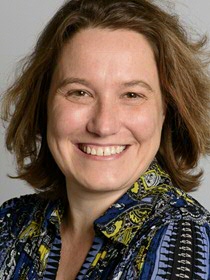Prof. Loos wins IUPAC 2021 Distinguished Women in Chemistry award
Prof. Katja Loos of the Zernike Institute for Advanced Materials ( ZIAM ) has been announced as one of the awardees of the IUPAC 2021 Distinguished Women in Chemistry or Chemical Engineering award. Loos is professor in the fields of macromolecular chemistry and polymer science with a research focus on sustainability and materials with added functionality. She and the other eleven international awardees have been selected based on excellence in research, distinguished accomplishments in education, and demonstrated leadership in the chemical sciences.

IUPAC biannually selects twelve awardees from a large pool of international nominations. Loos is just the second Netherlands based chemist who receives this important recognition. The IUPAC awards program was created to acknowledge and promote the work of women chemists/chemical engineers worldwide. This fits well with the International Day of Women and Girls in Science, which is a global day celebrating achievement and promoting full and equal access to and participation in science for women and girls on February 11 each year.
More news
-
17 February 2026
The long search for new physics
-
10 February 2026
Why only a small number of planets are suitable for life
